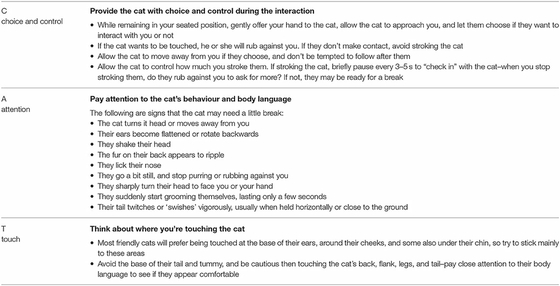Many cat lovers are trying to give affection in ways that cats don't want

Investigation of individual human differences as predictors of their animal interaction styles, focused on the domestic cat | Scientific Reports
https://www.nature.com/articles/s41598-022-15194-7
The most experienced cat owners are giving their pets unwelcome affection, study suggestions | Nottingham Trent University
https://www.ntu.ac.uk/about-us/news/news-articles/2022/08/the-most-experienced-cat-owners-are-giving-their-pets-unwelcome-affection,-study -suggests
Many Cat Lovers Are Giving Their Cats Unwanted Affection, Study Suggests : ScienceAlert
https://www.sciencealert.com/many-cat-lovers-are-giving-their-cats-unwanted-affection-study-suggests
Each animal has its own body parts that it likes to be petted and how it feels good to be held, and there's been research on cats about how to reassure them, at least reduce hostility, and treat them affectionately. . Researchers at Nottingham Trent University have presented what they call 'CAT guidelines' that provide cats with choice and control (choice and control), act with attention to the cat's reaction (attention), and place touch on the cat. We encouraged a way of interacting with cats that is limited to the temporal region (Touch).

Meanwhile, new research suggests that cat lovers are more likely to pet places where cats don't like or feel comfortable, limiting their options for how their cats are treated. It has been. ``Every cat is unique, and many have specific preferences about how they interact with humans,'' said Lauren Finca, a professor of animal behavior and welfare at Nottingham Trent University. But there are also some good general principles to follow to make sure all cats are as comfortable as possible and that their specific needs are met,' explains the study.
In the study, in cooperation with a dog and cat shelter in the UK, an experiment was conducted in which 120 volunteers interacted with three cats for the first time for 5 minutes. Volunteers completed a pre-questionnaire about their personalities and experiences with cats, and were instructed to interact with cats in the same way they would with their own cats. During the actual contact time, cats were instructed to choose the timing of petting as much as possible, avoid touching too aggressively, and pay attention to the cat's reactions and body language. It also suggested that touching the base of the ears, cheeks, and under the chin was best for cats.
As a result of the experiment, people who rated themselves as 'experienced and familiar with cats' did not like cats to be petted as much as the base of the tail, rather than petting the parts that were previously considered preferable for cats. They tended to touch their tummy, legs, and back. In addition, people who answered that they had more cats at home or had cats for a longer time had more freedom to choose when and where their cats were petted when they were interacting with their cats. It was discovered that the number of cases where the cat was given to the cat decreased, and the cat was actively touched.

Older, more neurotic people were also more likely to hug and restrain their cats, while extroverts were more likely to touch their cats and stroke them where they don't like them. that's right. In contrast, participants who scored higher on the personality questionnaire for 'cooperativeness' had fewer opportunities to touch parts that cats disliked. Those who said they had experience working with cats and other animals were also more likely to take a more 'cat-friendly' approach, letting their cats run free and being more responsive to their requested movements. . Taken together, the researchers conclude that people's experiences, personalities, and perceptions of their own cat skills can have a significant impact on how they interact with cats.
In response to this research, Professor Finca said, ``In order to evaluate whether you are good at interacting with cats and to judge whether you are apt to adopt a specific cat, you need to evaluate the experience of owning a cat, the length of time you have owned a cat, and the like. such as the length of , should not always be considered as a reliable indicator.' The research team also introduced a ``movie for acting appropriately around cats'' published by the Battersea shelter that cooperated in the research, and also researched that everyone can recognize the correct interaction with cats. emphasized as an important objective of
How to interact with your cat | The Battersea Way-YouTube
Related Posts:
in Creature, Posted by log1e_dh







